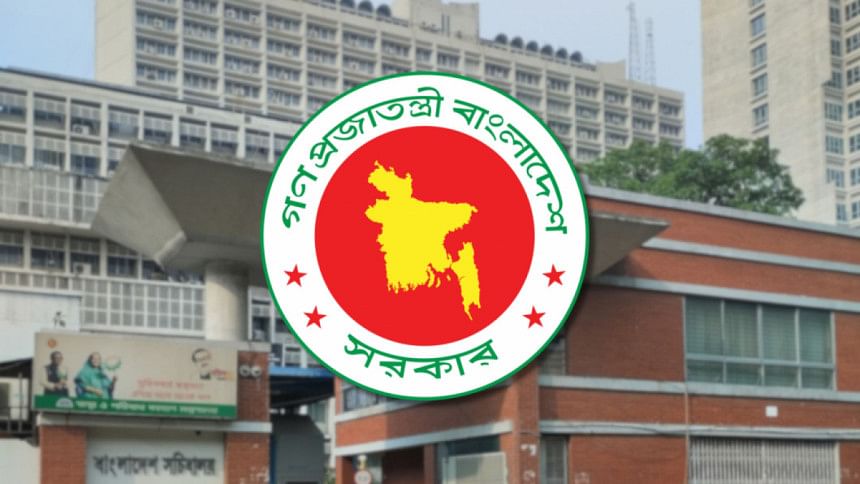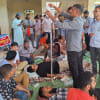VC appointment: No uniform policy in 53 years

The appointment of vice chancellor at public universities ultimately comes down to the candidates' political leanings, despite repeated calls for reforming the process.
In 1991, a task force formed by an interim government recommended changes to the appointment procedure. An education commission in 2003 and the University Grants Commission's 2006-2026 strategic plan proposed forming a search committee for VCs appointment.
The UGC in its annual reports recommended a guideline for the appointments at least twice.
After the fall of the Awami League government on August 5, the University Teachers Network, a body of public university teachers, said "sycophants" should not be VCs.
Dhaka University Shikkhak Samaj recommended legal changes to ensure an appointment process free of "state interference".
Former Jahangirnagar University teacher Anu Muhammad said, "Governments want subservient administrations on campuses. They want administrations to do nothing when the ruling party's student activists break the law."
Only four out of 55 public universities have an uniform system for appointment of VCs even after 53 years of the country's independence.
The Dhaka, Rajshahi, Chittagong and Jahangirnagar universities function under the 1973 University Ordinance, which says the university senates must elect the VCs.
At the 51 other universities, the president appoints VCs with the prime minister's consent.
REFORM PROPOSALS IN VAIN
After the fall of HM Ershad in 1990, the interim government set up 29 task forces headed by Prof Rehman Sobhan.
In its report, the task force that reviewed the education sector wrote: "The appointment and promotions become dependent on loyalties rather than on demonstrated academic abilities…. This calls for reexamination of the statutes and regulations that govern the universities."
In 2003, an education commission headed by Professor Mohammad Moniruzzaman Miah recommended forming a committee headed by the chief justice to appoint VCs.
Other members of the committee would be three academics nominated by the chancellor (the president), one academic by the education ministry, one by the Public Service Commission chairman, and one by the UGC.
The UGC's Strategic Plan for Higher Education 2006-2026 says the system left a lot of "room for political manoeuvring".
It recommends that a national search committee should appoint VCs.
In 2007, the then-caretaker government formed a search committee to appoint VCs at all the universities, except the aforementioned four.
However, the committee did not accomplish much before getting disbanded in 2009 when the Awami League assumed power.
The 2022 UGC report suggests having a pool of qualified teachers in light of the recommendations made by a commission.
At the four universities run under the ordinance, the rule of appointing VCs through senate elections is often ignored, academics say.
No uniform policy in 53 years
from page 1
"Senate elections at the four universities sometimes do not take place for decades. Usually, the government appoints a VC and then an election is held to legalise that appointment," said former UGC Chairman Prof Nazrul Islam.
The latest VC elections were held at DU in 2019, at Jahangirnagar in 2022, Rajshahi in 2001 and Chittagong in 1991, according to university sources.
Anu Muhammad said, "Over the last 15 years, academics who were members of Bangabandhu parishad, took part in party processions, and were known as fully politically loyal were appointed as VCs. The question of academic excellence was ignored."
PM'S IMMENSE POWER
A former UGC member said the prime minister had immense power in the VC appointment process.
"It is normal for prime ministers to choose individuals linked to their parties. If a VC is appointed by the government, would he or she go beyond the ideology of the ruling party?" he asked.
Anu Muhammad said, "If you want to turn these institutions into real universities, create distance between them and the government."
Former UGC member Prof Muhammed Alamgir said there was not an upside to the VC appointments over political consideration.
POLITICAL VCS
Academics say leaders and members of the pro-Awami League "blue panel" or the pro-BNP "white panel" are appointed as the VCs, depending on which party is in power.
Researcher Mohiuddin Ahmad in his book "BNP: Somoy-Osomoy" wrote that after the liberation in 1971, teachers were divided into the pro-Awami League "blue panel" and anti-Awami League "pink panel" while the pro-BNP "white panel" was formed in the late 1980s mostly with breakaways from the "pink panel".
When the BNP was in power from 1991-96, Prof Maniruzzaman Miah, Prof Emajuddin Ahamed and Prof Shahid Uddin Ahmad were VCs of Dhaka University. They played key roles in consolidating the "White panel".
After the BNP was elected in 2001, DU VCs Prof Anwarullah Chowdhury, Prof SMA Faiz (current UGC chairman) made the "white panel" significantly stronger.
Meanwhile, pro Awami League teacher Prof AK Azad Chowdhury, was appointed DU VC after AL came to power in 1996. Azad was made an advisory council member of Awami League following the 2008 election when AL assumed power.
Since 2009, Prof AAMS Arefin Siddique, Prof Md Akhtaruzzaman and Prof ASM Maksud Kamal, were appointed DU VCs by the AL government. All of them are from the blue panel.
The Daily Star in January 2022 found that at least 39 out of 48 VCs of public universities have held posts in different pro-government teachers' bodies during their career.
Academics say the "political appointments" exacerbate corruption, nepotism and anomalies in teacher and staff recruitments.
EXAMPLES FROM OTHER COUNTRIES
Prof Nazrul said many countries have committees to appoint VCs.
In India and Pakistan, the state governments form the committees.
In Sri Lanka, VCs are appointed by the president for a three-year term, from a panel of three names recommended by a council of that university. An individual cannot be the VC of the same university more than twice.
There should be a uniform policy for appointing VCs, Anu Muhammad said, adding that academic excellence, administrative qualification and acceptability among teachers should be core requirements.
Siddique Zobair, senior secretary at the Secondary and Higher Education Division, said, "We have a plan to make a policy for this. We will decide whether there will be a search committee or something else."
Setting minimum requirements will be in consideration, he added.

 For all latest news, follow The Daily Star's Google News channel.
For all latest news, follow The Daily Star's Google News channel. 








Comments